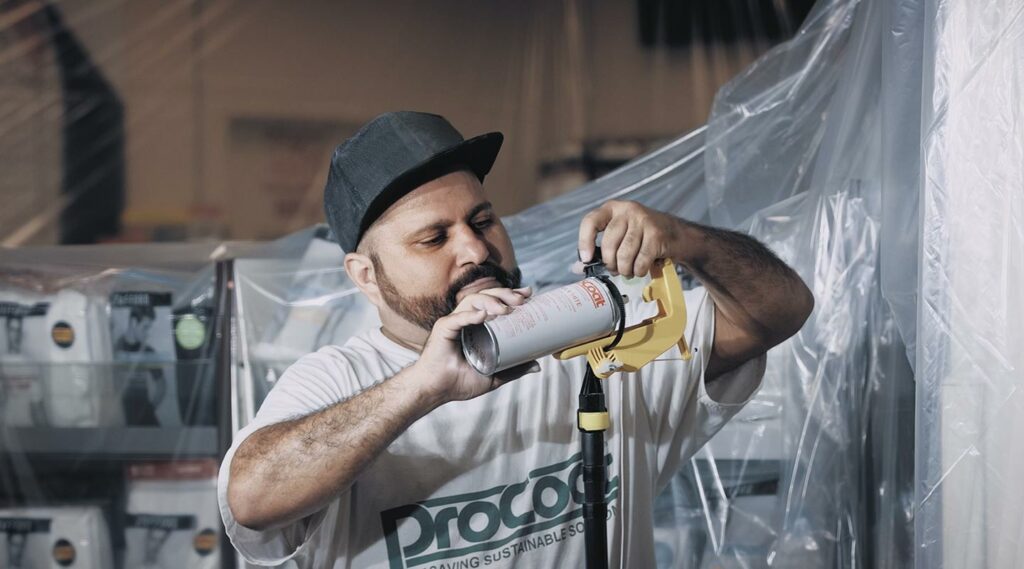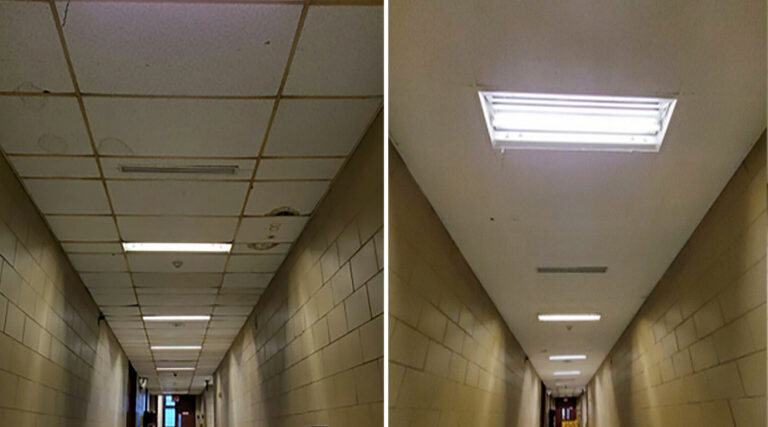No matter how it is done, a remodeling project is going to be an inconvenience in one way or another. And the longer it takes to complete the work, the more the intrusion there will be on normal activity within the facility being upgraded. While a dollar amount can be agreed upon, before beginning the project, that amount does not include the indirect costs associated with project delays.
Some of the causes of project delays include:
- Contractor does not arrive on schedule
- Required products/supplies are not available
- Contractor does not have sufficient personnel to make the schedule
- Contractor does not have equipment for greatest efficiency
Whether the foregoing become issues or not, depends on the contractor(s) performance. The purpose of this article is to describe a means of avoiding delays through a careful selective process in the naming a painting contractor and the same approach would be appropriate for other skills as well.
The Process Begins with References
The first step is to gather a number of contractor references, at least three. And the best source is the product suppliers. The local paint dealer sells paint to the contractors in the area and they know who is who. They know who pays there bills on time. They know who has problems applying products properly and following the manufacturer’s recommended application procedures. They know which ones take pride in their work and in general, run a professional operation.
And most importantly, they know which contractors have been around long enough to have encountered most issues and have learned how to deal with them. As an example, a contractor may be very good at interior trim work and surfaces but know very little about treating outdoor decks or concrete slabs.
The larger paint companies have many locations throughout the area and it is best to call around in order to determine which one is a commercial store. It is there that contractors do the bulk of their business while other stores will tend to cater more to the do-it-yourself homeowner.
No one wants to look bad in anyone’s eyes. Therefore, when asked for the names of three contractors they would recommend, they will tend to be very careful in responding. What happens if they recommend “John Doe” the Painter and “John” botches the job? That would make them look pretty bad and this is to be avoided. Therefore, they will provide “safe bet” recommendations.
Another source of recommendations is friends and relatives who have had success with a particular painter. These are second tier recommendations because their experience with the contractor will likely be limited to one kind of task. All that one can be sure of from that type of recommendation is that on that particular job, they did well.

Price is not the Only Consideration
While price is important, it cannot be the prime barometer of measure. The old saying, “You get nothing for nothing,” is as appropriate in this context as any other. Usually, the contractor who bids considerably less money than the competition is not including the same materials and/or labor. If they were, the prices would be much closer. Whatever is cut out, can be costly to the property owner long after the contractor is gone.
In interviewing competing contractors, there are a number of issues that should be addressed and then the responses by each of them should be evaluated in selecting the successful bidder.
- Products Used
Which products does the contractor recommend for each surface and why? See if the contractor (without being encouraged) suggests a given product because it holds its color longer and it is easier to maintain. Watch out for the, “It’s just as good as anything else and it is cheaper.” This project is something that should be done as infrequently as possible. That is why better performing products that hold up longer are usually the least expensive over the long haul.When the contractor recommends using a given product, does he/she offer technical data that supports the preferred material as being better? Product manufacturers have their products tested and that test data is evidence that the product performs as intended. A professional painting contractor is well acquainted with this information and will be inclined to produce written rationale to support the recommendation. - Insurance
It is amazing how many contractors are selected for a given project and never asked to provide a Certificate of Insurance before the project start-up. Accidents happen to the best of contractors and that will continue to be the case as long as humans are involved. And when that accident occurs, who is going to pay the bill? If insured, the contractor moves on and the property owner is protected.When asked for a Certificate of Insurance, the contractor contacts his/her insurance agent and provides the name and address of the property owner. The agent then produces a Certificate with the property owner listed as the “Holder.” It is not wise to accept a photocopy of a general Certificate of Insurance. There is also the option of asking to be listed as an “Additional Insured” rather than simply a “Holder.” - Performance Requirements
Each bidding contractor should be able to commit to a start and finish date. These dates should be mutually agreeable and conservative, so as to allow for the unknown. Too many contractors will agree to a start date but not be willing to commit to finishing in a reasonable time-frame. Those people are worth watching out for and should be viewed as less reliable than others who will make a commitment. Ideally, the commitment should be defined in terms of a penalty for non-performance. - Payment Schedule
It is common for a contractor to expect some type of payment with acceptance of their contract. From their perspective, before they make product purchases and block out time for their crews, they want some assurance that this project is real. The assurance usually takes the form of an up-front payment.It can also work the other way, if they ask for too much up-front. Many times, the contractor needs quite a bit in order to purchase the materials. One might ask why they need the client’s money to buy the materials. Often, it is because they do not have credit with their supplier to make purchases on terms. Or, they need money in hand to pay off what is needed to finish the project they are presently trying to finish. Contractors, who are operating on a shoe string, should be viewed as risky.
There are many horror stories of contractors who took large up-front payments and were never heard from again. These are obviously not professionals and they should be avoided in favor of those who operate more appropriately … all the more reason to ask for recommendations from the commercial paint dealer.
It is also common to have a second payment due at some mid-point and a final payment made upon satisfactory completion of the project. Care should be taken to pay the greatest amount upon completion. Contractors who question their own ability to perform satisfactorily, will try to get more earlier in the project with a mere 10% at the end. Contractors with confidence in their performance will have no problem looking for at least one-third at the end. - Employees
Are the crews made up of permanent employees or people picked up when needed? A dependable contractor is one that has been around long enough to have built an operation around personnel he/she has trained to do work at the best level. Those who pick up help as needed do not necessarily perform as well. - Equipment
Do they have their own equipment or do they rent it as needed? Particularly on commercial projects were lifts and scaffolding may be required, those who have their own are typically those who have made a commitment to their business and are in it for the long term.
Making the Selection
A proposal that includes only the price is an open invitation to problems. The proposals should be compared with grades given to each of the factors discussed earlier. They are:
- Recommend Products with Documentation
- Certificate of Insurance
- Project schedule
- Payment schedule
- Personnel and equipment
- Total price
Some project managers make out a spread sheet with these criteria listed for each of the bidding contractors. They assign a value of 0 – 10 points for each of them and add up a total. The contractor who scores the highest in all of these areas should be offered the project after checking with the Better Business Bureau and determining that they have a clear record.
While no system is perfect, any system to find the right partner is better than none at all.
ProCoat’s experience in the field and superior products makes for the perfect partner for your next renovation project.





